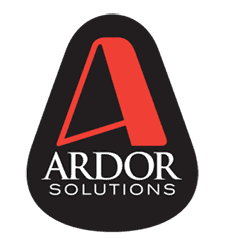
The floors at your facility are for more than just foot traffic. They’re also integral to maintaining a safe, productive, and efficient work environment. For many businesses, an industrial flooring system represents a significant investment, so choosing the right one for your facility’s needs is critical to protecting your bottom line.
What to Look for in an Industrial Flooring System
Whether you’re looking to replace the existing floors at your facility or you need to find the right flooring system for a new building, there are a few fundamental factors you need to consider if you want to get the most out of an industrial flooring installation. These factors include:
- Slip coefficient: A numeric measure of how much force is required for a shoe or foot to slide on a floor surface.
- Reflective sheen: A measure of the specular gloss value, relating to how much light a floor reflects from the surface.
- Color/finish: Certain flooring systems allow for a broader range of color palettes and customization options.
- Application: Different industrial flooring systems are better suited to specific commercial applications.
The Different Types of Industrial Flooring Systems
With these factors in mind, three core industrial flooring types can be customized to cover just about any application while checking all the boxes related to the above factors. These three systems include:
- Concrete flooring systems: Unpolished or polished concrete offers a durable, general-purpose flooring material suited to a wide range of applications with several customization options.
- Urethane flooring systems: Urethane cement and urethane coatings provide a seamless, low-maintenance flooring system with a broad range of customization options.
- Epoxy flooring systems: Ideal for leveling out uneven floor surfaces, epoxy floors provide a nonporous, chemical-resistant flooring surface. Quartz and flake can also be added to epoxy floors to maximize slip resistance.
Depending on your needs, one or more of the above industrial flooring systems can be optimized to achieve what you need in terms of slip coefficient, sheen, finish, and application. Let’s take a look at each of those four factors individually to provide a better understanding of what the best flooring material is for your facility.
Finding the right industrial flooring solution starts with understanding what you need. Ardor Solutions can help you take the first step with a free project needs assessment.
Industrial Flooring Slip Coefficients
Slip coefficients provide a measurable number of how much force it takes to slip on your floors. If individuals at your facility are at risk of falling due to a wet work environment, your flooring system needs to deliver maximum slip resistance. Even polished concrete can be ground to provide slip resistance, but if you need to maximize slip resistance, sand or silicate can be added to an epoxy flooring system to significantly reduce the likelihood of falls.
Industrial Flooring Reflective Sheen
Do you want to maintain the polished look of shining floors at your facility? For most general-purpose applications, polished concrete offers the most effective option to keep floors shining with minimal maintenance. For more demanding applications, epoxy floors offer unparalleled shine that requires minimal maintenance and resists scratches.
Industrial Flooring Finishes
If customization is at the top of your flooring priorities, epoxy floors offer the most options. From selecting from a virtually unlimited color palette to customizing the aggregate, epoxy floors can be designed to deliver any look you can imagine. Polished concrete floors and urethane cement also offer a broad range of color and stain options to achieve a unique finish but to a lesser degree than is possible with epoxy systems.
Industrial Flooring Applications
Chemical-Resistant Industrial Floors
If your facility’s floors are likely to be exposed to chemicals in an industrial or manufacturing environment, urethane cement is your best option. As a nonporous surface, urethane cement is easy to clean, and you don’t have to worry about chemicals damaging floors.
General Purpose Industrial Floors
For most general purpose applications, polished concrete or epoxy floors can be customized to meet your specific needs.
Food and Beverage Industrial Floors
For food and beverage applications, urethane industrial floor coatings or urethane cement provide a balance between cost-effectiveness and durability. Both resist chemicals, moisture, and dirt to maximize sanitation at your facility. For customer-facing applications, polished concrete or epoxy systems offer an excellent solution.
Aviation and Hangar Industrial Floors
Urethane cement is the ideal flooring system for aviation or hangar applications.
Dealership Floors
Polished concrete is the perfect showroom flooring system to showcase cars, boats, motorcycles, or anything else you sell!
Customize an Industrial Flooring System for Your Facility
Have a better understanding of what you need out of an industrial flooring system? Now, it’s time to start customizing! Get in touch with the flooring experts at Ardor today to schedule a free needs assessment.


